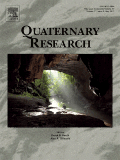
QUATERNARY RESEARCH
Scope & Guideline
Bridging Disciplines to Illuminate Earth's Dynamic History.
Introduction
Aims and Scopes
- Paleoclimate and Paleoenvironmental Reconstruction:
The journal extensively covers research aimed at reconstructing past climates and environments using various proxies such as sediment cores, isotopic analyses, and fossil records. - Geochronology and Dating Techniques:
A significant focus is on developing and applying dating methods like radiocarbon dating, luminescence dating, and other geochronological techniques to establish timelines for geological and archaeological events. - Sedimentology and Stratigraphy:
Research on sedimentological processes, stratigraphic sequences, and depositional environments is key, providing insights into Earth’s surface processes and historical changes. - Human-Environment Interactions:
The journal explores the interactions between human activities and environmental changes, especially during significant periods like the Pleistocene and Holocene, to understand how these dynamics shaped societies. - Biodiversity and Extinction Events:
Studies of past biodiversity, including megafaunal extinctions and the ecological impacts of climate change, are critical areas of investigation within the journal. - Regional Studies and Case Analyses:
QUATERNARY RESEARCH emphasizes regional studies that contribute to global understanding, showcasing case analyses from various geographical contexts.
Trending and Emerging
- Integrated Multi-Proxy Approaches:
There is a growing trend towards using integrated multi-proxy approaches that combine various methods and data types (e.g., isotopes, sedimentology, and biological data) to provide a more comprehensive understanding of past environments. - Climate Change and Human Impact Studies:
Research examining the impacts of climate change on human societies, particularly in relation to migration, resource use, and adaptation strategies, is increasingly prominent. - Technological Innovations in Data Collection:
The use of advanced technologies, such as high-resolution imaging and geophysical methods, is gaining traction, allowing for more detailed analyses of Quaternary deposits and landscapes. - Focus on Extreme Climate Events:
There is an emerging interest in studying extreme climate events (e.g., droughts, floods) and their impacts on ecosystems and human societies, reflecting the current urgency of understanding climate variability. - Paleoecology and Biodiversity Conservation:
An increasing number of studies focus on paleoecological data to inform modern biodiversity conservation efforts, highlighting the relevance of historical data in addressing contemporary environmental challenges.
Declining or Waning
- Traditional Archaeological Studies:
Research that primarily focuses on archaeological findings without integrating environmental or climatic contexts has decreased, as the field shifts towards more interdisciplinary approaches that combine archaeology with paleoenvironmental studies. - Static Models of Climate Change:
There is a waning interest in static models that do not account for dynamic interactions between climate, ecosystems, and human activities, as researchers increasingly favor more complex, integrative models. - Localized Studies without Broader Implications:
Papers focusing solely on localized studies without broader implications for understanding global or regional patterns are becoming less frequent, as the journal encourages research that contributes to larger discussions in Quaternary science.
Similar Journals
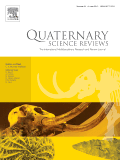
Quaternary Science Reviews
Exploring the Depths of the Quaternary EraQuaternary Science Reviews is a premier international journal published by PERGAMON-ELSEVIER SCIENCE LTD, dedicated to the multidisciplinary study of the Quaternary period and its implications across a variety of scientific fields, including archaeology, geology, ecology, and environmental science. With an impressive impact factor that places it in the Q1 quartile across multiple categories such as Archaeology, Ecology, and Geology, it stands as a beacon of scholarly excellence. The journal, which has been in circulation since 1982 and converges its knowledge through to 2024, is instrumental for researchers and professionals seeking to explore the complexities of climate change, biodiversity, and earth systems. Though it does not currently offer Open Access options, its well-curated content remains vital for academic advancement and is accessible to a broad audience through institutional subscriptions. Positioned at the forefront of modern scientific inquiry, the journal fosters an environment for sharing pivotal findings and fostering intellectual discussions, making it an indispensable resource for students, practitioners, and researchers alike.
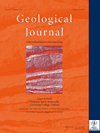
GEOLOGICAL JOURNAL
Elevating the conversation in Earth and Planetary Sciences.GEOLOGICAL JOURNAL, an esteemed publication by WILEY, has been at the forefront of geological research since its inception in 1951. With an ISSN of 0072-1050 and E-ISSN of 1099-1034, this journal serves as a vital platform for disseminating high-quality, peer-reviewed research in the field of geology. Operating out of the United Kingdom, the journal proudly features a Scopus rank of 80 out of 321 in the Earth and Planetary Sciences category, reflecting its commitment to scholarly excellence, with a 2023 category quartile ranking of Q2. As part of its innovative approach, GEOLOGICAL JOURNAL seeks to foster interdisciplinary collaborations, advancing our understanding of earth processes, materials, and history. Although it does not offer open access options, its robust subscription model ensures that both professionals and students have access to groundbreaking insights. With a publication history that spans over seven decades, the GEOLOGICAL JOURNAL continues to be an indispensable resource for the global geological community, encouraging discoveries that shape our comprehension of the planet.
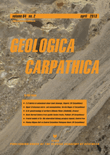
GEOLOGICA CARPATHICA
Fostering Innovation in Geological ResearchGEOLOGICA CARPATHICA, with ISSN 1335-0552 and E-ISSN 1336-8052, is a distinguished open access journal published by the Slovak Academy of Sciences Geological Institute, serving as a pivotal platform for the dissemination of research in the field of Geology. Established in 1991 and continuing through 2024, the journal is recognized for its significant contributions to Earth and Planetary Sciences, evidenced by its 2023 Scopus ranking placing it in the second quartile (Q2) within Geology. With an H-index that showcases its impactful publications, GEOLOGICA CARPATHICA is committed to fostering scholarly communication while promoting accessible research, having adopted an open access model since 2009. Located in beautiful Bratislava, Slovakia, this journal aims to engage a global audience of researchers, professionals, and students interested in ecological, geological, and environmental studies, making it a prominent resource for enriching the scientific community's understanding of the Carpathian region and beyond.

Cuaternario y Geomorfologia
Bridging Disciplines for a Deeper Earth UnderstandingCuaternario y Geomorfologia is a distinguished journal published by the Spanish Quaternary Research Association, focusing on the interdisciplinary study of Quaternary research, geomorphology, and related fields. With its ISSN 0214-1744 and a publication history spanning from 2012 to 2024, the journal serves as a critical platform for researchers and practitioners in geography, geology, and paleontology. Although its current Scopus rankings place it in the lower quartiles across various categories, being Q4 in Earth-Surface Processes, Geography, Planning and Development, Geology, and Paleontology, Cuaternario y Geomorfologia continues to push boundaries within its sphere, aiming to foster a deeper understanding of Earth sciences. Situated in Madrid, Spain, the journal's commitment to sharing groundbreaking research without access barriers enhances its value for academics, offering insights that drive forward the fields of Quaternary studies and beyond. Researchers, professionals, and students alike will find a rich repository of knowledge within its pages, making it an essential resource for current and aspiring experts in the discipline.

Stratigraphy
Decoding Earth's History Through Fossil RecordsStratigraphy is a distinguished journal dedicated to advancing the field of paleontology and stratigraphic research. Published by MICRO PRESS in the United States, this journal is accessible via its ISSN 1547-139X and E-ISSN 2331-656X, providing an essential platform for researchers, professionals, and students alike. With a robust focus on the intricate relationships between geological time and the fossil record, Stratigraphy aims to disseminate high-quality research that enhances our understanding of Earth’s history. Its ranking within the 2023 Q2 category of paleontology reflects its commitment to scholarly excellence, as noted by a Scopus ranking of #65 out of 113 in the Earth and Planetary Sciences domain, placing it in the 42nd percentile. Although not open access, the journal's valuable contributions from 1988 to 2024 encourage a collaborative dialogue among the scientific community, underscoring the significance of stratigraphic studies in environmental and evolutionary research.
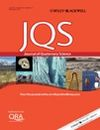
JOURNAL OF QUATERNARY SCIENCE
Pioneering Research in Quaternary ScienceThe JOURNAL OF QUATERNARY SCIENCE, published by Wiley, stands as a premier platform for the dissemination of pivotal research in the fields of Arts and Humanities, Earth and Planetary Sciences, and Paleontology. With its ISSN 0267-8179 and E-ISSN 1099-1417, this esteemed journal has achieved an impressive Q1 ranking across multiple categories in 2023, highlighting its significant impact and relevance within the academic community. With a history extending from 1986 to 2024, it offers a treasure trove of knowledge, presenting cutting-edge studies that advance our understanding of Quaternary science. Although the journal does not operate under an Open Access model, it remains highly regarded, as evidenced by its Scopus rankings positioning it in the top percentiles within its categories. Researchers, professionals, and students alike will benefit from the robust insights and innovative research published in this journal, making it an essential resource for anyone engaged in the study of Quaternary environments and their implications on our planet’s history.

Frontiers of Earth Science
Exploring the Depths of Earth and BeyondFrontiers of Earth Science is a prominent academic journal in the field of Earth and Planetary Sciences, published by Springer. With an ISSN of 2095-0195 and an E-ISSN of 2095-0209, this journal serves as a significant platform for researchers and professionals to disseminate their findings from 2007 to 2024. It is recognized for its impactful contributions within the category of Earth and Planetary Sciences, boasting a respected Q2 ranking in 2023. With a Scopus ranking of 64 out of 195, placing it in the 67th percentile, Frontiers of Earth Science continues to drive academic dialogue and innovation. The journal is dedicated to exploring a diverse range of topics, including geology, meteorology, and environmental science, and amplifying the understanding of Earth systems through rigorous research. Located in New York, USA, this journal embraces an Open Access model, ensuring that groundbreaking research is readily available to the global scientific community, thereby enhancing its accessibility and impact.
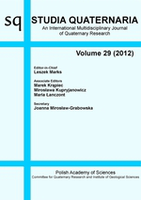
Studia Quaternaria
Uncovering the secrets of geology and Earth-surface interactions.Studia Quaternaria is a leading academic journal published by the Polish Academy of Sciences, Institute of Geological Sciences, specializing in the dynamic fields of Earth-Surface Processes and Geology. With an ISSN of 1641-5558 and an E-ISSN of 2300-0384, this journal has been a prominent platform for scholarly discourse since its inception in 2000. Operating under the open-access model, it aims to disseminate high-quality research that is accessible to a global audience. Studia Quaternaria holds a Q3 ranking in both relevant quartiles as of 2023, indicating its commitment to advancing knowledge in its disciplines despite centering in competitive academic environments. With its publications indexed in Scopus, the journal remains a valuable resource for researchers, professionals, and students looking to stay abreast of innovations and discoveries in Earth-Surface Processes and Geology. Encompassing a broad scope of studies, the journal represents an essential contribution to the geological sciences, fostering a deeper understanding of our planet's changes and processes.

QUATERNAIRE
Exploring Earth's Secrets, One Article at a Time.QUATERNAIRE is a reputable journal managed by the Société Géologique de France, specializing in the realms of Earth-Surface Processes and Geology. This esteemed publication has been a vital platform for scientific discourse since its inception, presenting compelling research and insights from both fields. With a significant impact in the academic community, it currently holds a Q3 quartile ranking in the 2023 Scopus categories, demonstrating its importance in disseminating knowledge related to geological phenomena. Although QUATERNAIRE does not have an open access model, it ensures that critical research is accessible to a wide audience, enhancing collaboration among geoscientists and environmental researchers. Based in France at 77, Rue Claude-Bernard, Paris F-75005, this journal continues to evolve its publication scope, welcoming contributions that delve into the intricacies of Earth's processes from 1990 to 2024. Researchers, professionals, and students alike will find valuable resources and inspiration within its pages, contributing to a deeper understanding of our planet's past and present.

GEOSCIENCES JOURNAL
Advancing Knowledge in Earth and Planetary Sciences.Welcome to the GEOSCIENCES JOURNAL, a pivotal publication in the fields of Earth and Planetary Sciences and Environmental Science, proudly presented by the Geological Society of Korea. Established in 1997, this journal has become a prominent platform for researchers, professionals, and students, offering a rich collection of peer-reviewed articles that explore a diverse array of geoscientific topics. With an impressive Q2 ranking in both Earth and Planetary Sciences and Environmental Science categories for 2023, it stands as an essential resource in the academic community. Though it operates under a traditional subscription model, GEOSCIENCES JOURNAL remains dedicated to advancing knowledge through rigorous research. Addressed from its headquarters in Seoul, South Korea, the journal aims to foster a deeper understanding of geosciences, encouraging innovation and collaboration in tackling today’s environmental challenges.